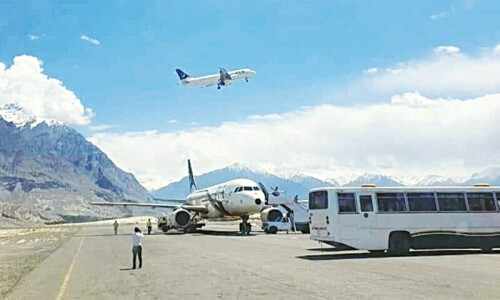NOT many are surprised by the fact that more than a year since their contents were revealed to the world, the Panama Papers have failed to create any serious tax-enforcement action within the country. Officials of the Federal Board of Revenue recently said that the revelations can serve the purposes of producing headlines in the news media, but are not enough to activate serious tax action. In particular, they say, that it is not enough to know that a certain individual or entity owns an offshore company. They need to have details of the assets connected with that company to be able to proceed. This may well be the case. But the fact of the matter is that no serious action, whether related to tax evasion or the stashing away of ill-gotten gains, can be expected in this country simply because those making the rules are themselves involved in the enterprise. Many of those who have been named in the Panama and the Paradise Papers are either at the helm of affairs, or exercise clout and influence. It is little surprise, therefore, that the state lacks the tools with which to inquire into their affairs.
A line has been doing the rounds for many years now, saying that Pakistani laws, especially the Protection of Economic Reforms Act of 1992, prevents any inquiries into cross-border foreign currency transactions. This line is only partially true. There are numerous other laws that can be invoked if wrongdoing is suspected — in the State Bank’s foreign exchange manual for example. What is missing is the will at the top. So long as top government policymakers are themselves seen to be involved in corruption and money laundering, there is little that the tax, regulatory or law-enforcement authorities can do. Adding to the problem, if allegations of money laundering and corruption are politicised in an exercise of selective enforcement, it makes the entire process more of a witch hunt than a means to plug the loopholes that enable the cross-border movement of illicit or tax-evaded wealth. The FBR officials are partially right when they point out that their hands are tied in the face of these disclosures. What is more important to note is how central illicit flows of money are to the normal functioning of Pakistan’s politics and economy. Curbing this will take more than a few disclosures.
Published in Dawn, November 21st, 2017












































